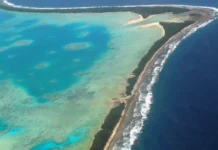We are constantly being told by experts to wear sunscreen but can we trust it anymore considering there’s so much damning evidence linking certain ingredients to cancer and coral reef damage?
Remember Baz Luhrmann’s 1999 number one hit, Everybody’s Free:
“If I could offer you only one tip for the future, sunscreen would be it. The long term benefits of sunscreen have been proved by scientists, whereas the rest of my advice has no basis more reliable than my own meandering experience…”

Everybody’s Free: Baz Luhrmann’s 1999 number one hit and its curious advice
Well Baz, it turns out those scientists hadn’t factored in a few, rather vital components. The initial warning signs that all is not right with our so called protection could be seen in our coral reefs, the lungs of the ocean.
It turns out mass tourism and the sunscreen that accompanies it are ruining our planet’s delicate coral reefs, not helped by global warming, pollution and over-fishing.
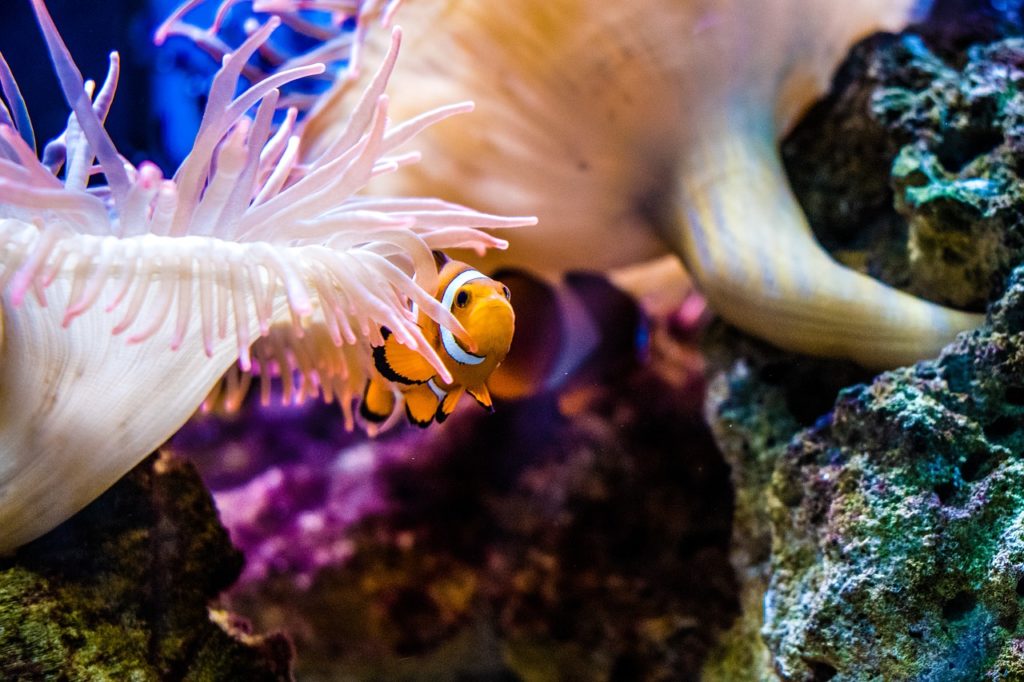
Sunscreen, Corals and Cancer: Some 14,000 tons of chemicals end up on coral reefs each year Image: Pixabay
Every year as much as 14,000 tons of sunscreen lotion ends up contaminating coral reefs corresponding with the destruction of nearly half the world’s coral reefs over the past 30 years.
Sorry Baz, we can’t trust you on the sunscreen after all.
We’re going to have to reassess all that sunscreen advice and consider what kind of protection we should wear that won’t damage our only home, Planet Earth.
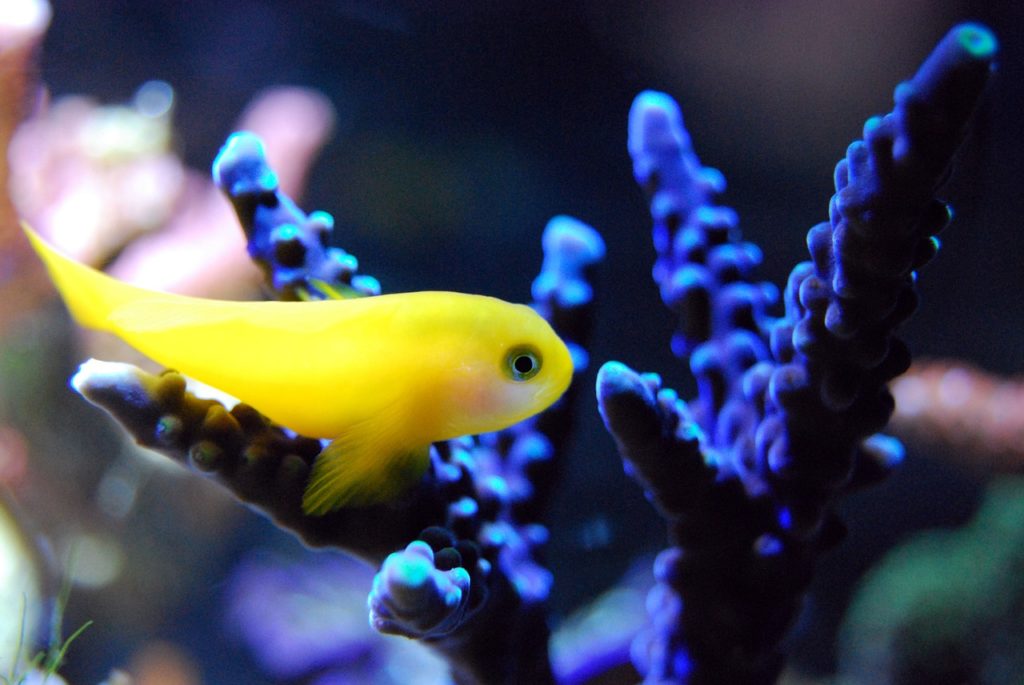
Sunscreen, Corals and Cancer: If it’s killing coral life, what’s it doing to us? Image: Pixabay
The toxic ingredient you want to look out for is oxybenzone which appears in a staggering 3,500 well-known sunscreens.
Forensic eco-toxicologist Craig Downs Ph.D says oxybenzone creates “Reef zombies – corals and other reef organisms that look healthy but are actually sterile so they cannot reproduce. And once those reefs die, we’ve found they’re not coming back”. Downs claims bout 90% of the reefs in the Caribbean have disappeared since 1980.
Hawaii became the first US state to ban the sale of sunscreens containing oxybenzone and octinoxate in July of last year with Key West, Florida following suite by 2021.
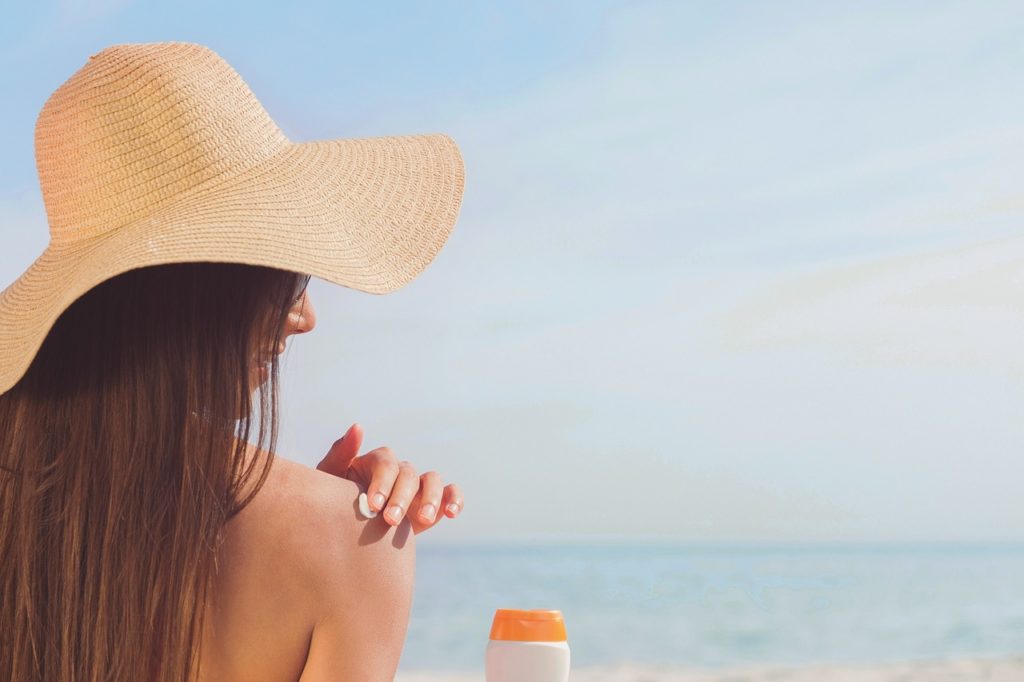
Sunscreen, Corals and Cancer: Think twice before you choose your brand Image: Pixabay
A 2015 study in Hawaii found oxybenzone was shown to deform coral in its larval stage, causing the juvenile polyps to become trapped inside their own skeletons, eventually resulting in death.
It makes you think if it’s doing this to coral reefs, what is it doing to us?
Breastcancer.org says: “While chemicals can protect us from the sun’s harmful ultraviolet rays, research strongly suggests that at certain exposure levels, some of the chemicals in some sunscreen products may cause cancer in people. Many of these chemicals are considered hormone disruptors.
Hormone disruptors can affect how oestrogen and other hormones act in the body, by blocking them or mimicking them, which throws off the body’s hormonal balance.
Because oestrogen can make hormone-receptor-positive breast cancer develop and grow, many women choose to limit their exposure to these chemicals that can act like estrogen.“
A study published on May 6th 2019 in the Journal of the American Medical Association also raises the alarm on sunscreen. Again oxybenzone has been singled out as the main concern by the US Food and Drug Administration data.
“These molecules are chemical rings, essentially, and they absorb light,” says Dr. Kanade Shinkai, who co-wrote an editorial accompanying the study. “Chemical rings are also the fundamental basis for a lot of hormones, and chemical rings tend to enter cells.”
It follows revelations that sunscreen chemicals were found in 95 per cent of participants in a study undergoing mastectomies. Last year consultant breast surgeon Lester Barr, of the Prevent Breast Cancer research unit in Manchester, and Philippa Darbre, a professor of oncology at the University of Reading took tissue samples from 40 breast cancer patients having treatment for the disease. The chemicals identified in the new study were benzophenone-3, octyl methoxycinnamate and 4-methylbenzylidene camphor.
‘Excessive exposure to oestrogen is a risk factor for breast cancer and these chemicals have the potential to add to the oestrogenic burden of the human breast,’ says Professor Darbre.
Our advice: Stay informed, read the labels, opt for coral friendly brands, stay in the shade where possible, wear suitable clothing including a wide brimmed hat and try swimming away from direct sunlight so you’re not polluting the seas.
Exquisite.ie’s #Reefsafe top sunscreens:
Eau Thermale Avene
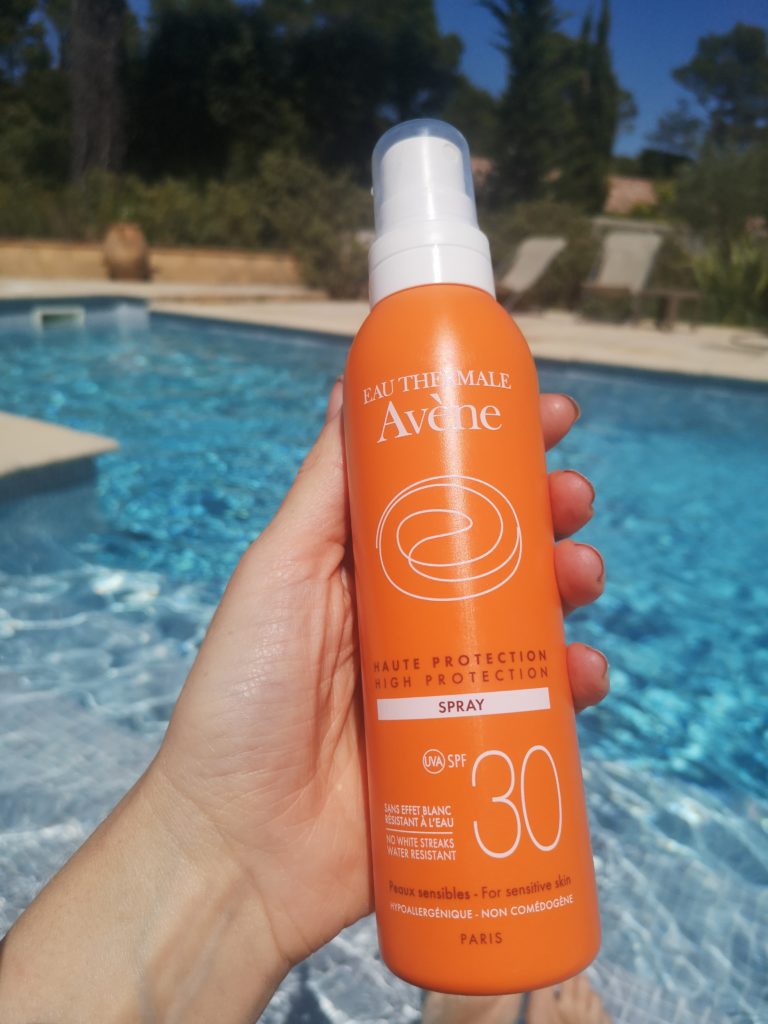
Avene: Among the emerging coral friendly sunscreens on the market Image: Exquisite.ie
Avene have responded to calls for change and have reformulated their range to reduce the impact of sunscreen on the marine environment. Eau Thermale Avene has partnered with the Pur Project in Indonesia to help revive and preserve coral reefs. More than 800 corals were planted in 2017, and more than 1000 corals were preserved.
Price: €22 BUY HERE
Eminence Organic Skin Care Lilikoi Mineral Defense
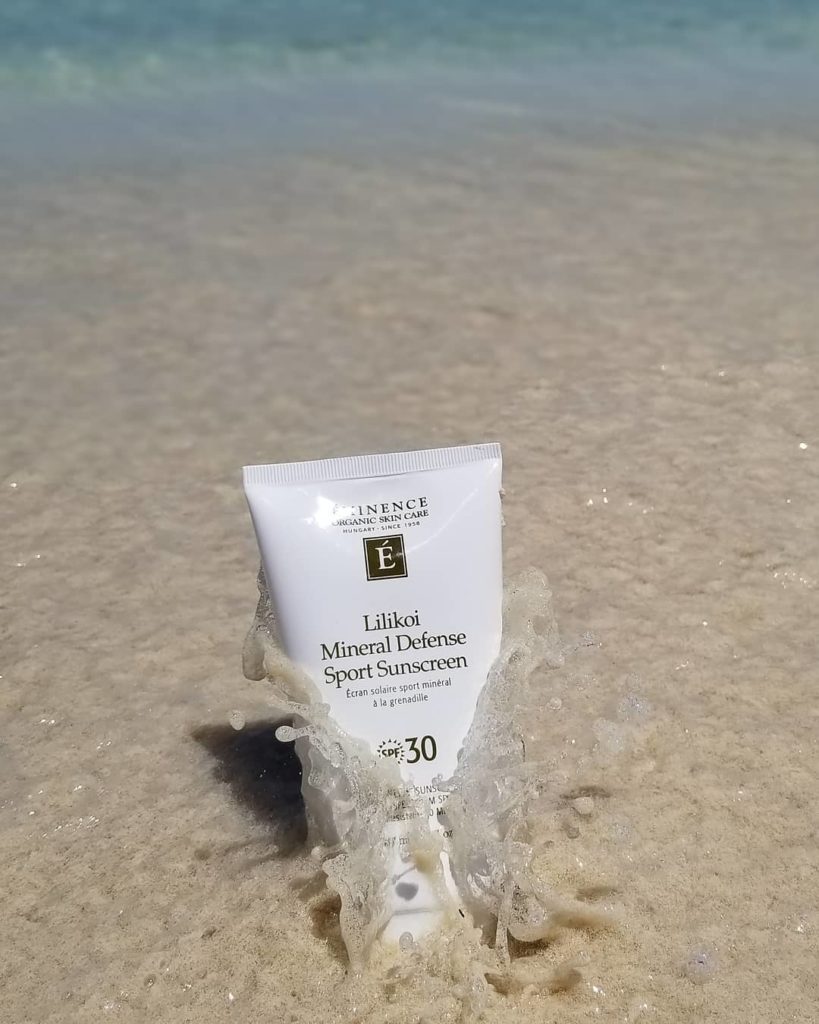
Reef-friendly sunscreen: Eminence Organic Skin Care Lilikoi Mineral Defense Image: Deskgram
An easy-to-apply sport formulation for your face and body. This SPF 30 mineral sunscreen is non-greasy and water-resistant up to 40 minutes. Highly effective for outdoor activities like swimming and high-performance sports where perspiration can impact standard sunscreen efficacy, this zinc oxide sunscreen protects from head to toe.
Price: €59 Buy Here
Raw Love The Natural Mineral Sunscreen
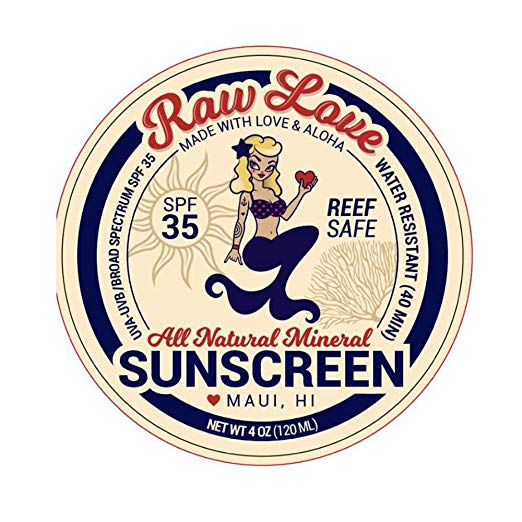
Reef-friendly sunscreen: Raw Love from Maui offers protection without compromising your health Image: Raw Love
The founder of Raw Love, a Maui-based company, created this reef-safe sunscreen because she was looking for a non-toxic alternative to regular sunblock. It’s 23% zinc oxide, offers full broad spectrum sun protection with 35 SPF – UVA/UVB, goes on white, rubs in clear. It’s a concentrated formula so a little goes a long way. Suitable for any age, stays on you while being active in the water.
Price: €16 Buy Here
Remember you have the power as the consumer to plump for the companies that are making an effort to change.








